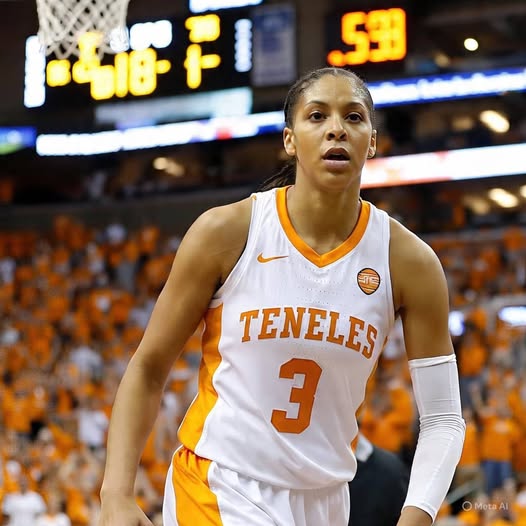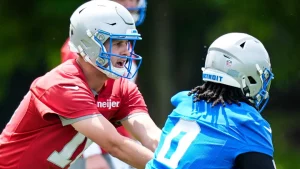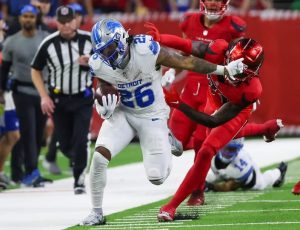
In an announcement that has reverberated across the college basketball world, ESPN has officially crowned Candace Parker as the greatest women’s college basketball player of all time, a title that both celebrates her indelible legacy and redefines the pantheon of all-time greats. The former Tennessee Lady Vols superstar was chosen over an elite field of legendary names, including Diana Taurasi (UConn), Cheryl Miller (USC), and Lynette Woodard (Kansas). With this designation, Parker not only solidifies her status as a titan in women’s basketball history but also reinforces the enduring legacy of the late Pat Summitt and the powerhouse program she built in Knoxville.
The Criteria Behind the Crown
The rankings, released as part of ESPN’s special “Top 25 Greatest Women’s College Basketball Players” countdown, factored in individual dominance, team success, cultural impact, and long-term influence on the game. A panel of analysts, former coaches, players, and media personalities collaborated to determine the pecking order.
While the final list featured generational talents from every era of the sport, from Woodard’s pioneering brilliance in the late 1970s to Caitlin Clark’s scoring fireworks in the 2020s, it was Parker who topped them all—a result met with both applause and affirmation from the basketball community.
Parker’s College Career: A Legacy of Firsts
Candace Parker’s impact on women’s college basketball is impossible to overstate. From the moment she arrived in Knoxville in 2004, she carried the weight of expectations as the first woman to ever dunk in an NCAA tournament game and lived up to every ounce of the hype.
A two-time Naismith Player of the Year (2007, 2008), Parker led the Lady Vols to back-to-back national championships in 2007 and 2008, becoming the first player to accomplish such a feat under Summitt since the early ‘90s.
Her stats at Tennessee were staggering:
- Career points: 2,137
- Rebounds: 972
- Blocks: 275
- Field goal percentage: 53.2%
But what made Parker special wasn’t just the numbers—it was her versatility, poise, and ability to elevate teammates. At 6’4″, she could play all five positions, dominate inside, handle the ball like a guard, pass like a point forward, and shoot from the perimeter. Simply put, she was ahead of her time.
In a sport that had seen dominant scorers, rebounding machines, and lockdown defenders, Parker was the rare player who could do it all—and win while doing it.
Overcoming the Greats
What sets Parker’s ranking apart is the caliber of competition she surpassed to claim the top spot.
Diana Taurasi (UConn)
Long dubbed “the White Mamba,” Taurasi led UConn to three consecutive national titles (2002–2004) under Geno Auriemma and was known for her clutch performances, elite shooting, and competitive fire. Many consider her the greatest winner in women’s hoops. Taurasi remains UConn’s all-time leader in three-point field goals and is widely revered for her WNBA and Olympic success.
Cheryl Miller (USC)
Arguably the most dominant player of the 1980s, Cheryl Miller transformed the game during her tenure at USC. She led the Women of Troy to two national titles (1983 and 1984) and amassed a 112–20 record. Her charisma and athleticism helped usher women’s basketball into the national spotlight, even drawing comparisons to Magic Johnson and Larry Bird in her heyday.
Lynette Woodard (Kansas)
A generational talent who played before the NCAA officially sponsored women’s basketball, Woodard scored a record 3,649 points during her college career and later became the first female Harlem Globetrotter. Though she predated televised Final Fours and the WNBA, her impact on the game’s growth is incalculable.
While each of these legends made a strong case, Parker’s combination of team success, statistical dominance, transcendent talent, and cultural relevance made her the standout choice.
Pat Summitt’s Ultimate Weapon
Candace Parker’s greatness is inextricably linked to Pat Summitt, the Hall of Fame coach who won eight national titles and is still the winningest coach in women’s NCAA history. Summitt’s relentless focus on excellence, discipline, and mental toughness turned Parker from a high school phenom into a two-time national champion.
It was a match made in basketball heaven: Parker’s innate feel for the game, combined with Summitt’s genius for player development and leadership, resulted in a team that captured the imagination of fans nationwide.
“Candace was the most complete player I ever coached,” Summitt once said. “She was a guard in a forward’s body. There wasn’t anything she couldn’t do.”
Even after Summitt’s passing in 2016, Parker has continuously honored her mentor through her play, advocacy for women in sports, and her role as an ambassador of the Lady Vol legacy.
Cultural Icon & Role Model
Parker’s influence stretches well beyond the hardwood. She has become a media personality, an analyst for NBA on TNT, a WNBA champion, and a trailblazer for gender equity in sports.
Her presence in high-profile media roles has expanded the reach of women’s basketball, and she has consistently used her platform to elevate other female athletes, champion social justice, and promote the next generation of stars.
She was also among the first active WNBA players to become a working mother, and she has spoken candidly about balancing motherhood with elite-level athletics, helping destigmatize the conversation around women athletes and parenting.
In recent years, she became the first woman featured on the cover of the NBA 2K video game franchise and was named one of TIME’s 100 Most Influential People. The legacy she’s crafting off the court is as meaningful as the one she created while wearing orange and white.
A Boost for Tennessee and SEC Legacy
Parker’s top billing also reinforces the storied legacy of SEC women’s basketball, a conference that has long been considered one of the toughest and most competitive in the country. Tennessee’s status as a historic blueblood, particularly during the Summitt era, is unmatched, and Parker remains its brightest star.
While modern-day programs like South Carolina under Dawn Staley are now carrying the torch, the crowning of Parker serves as a reminder of the SEC’s long-standing dominance and national relevance.
It also provides a massive recruiting boost for the Lady Vols program, now led by Kellie Harper, who has made it her mission to reconnect the team to its championship roots.
Reaction From the Basketball World
The basketball world responded with widespread support after ESPN announced Parker as No. 1.
Geno Auriemma, UConn head coach and longtime rival of Tennessee, said, “I’ve always respected Candace’s game. She was special—her IQ, her versatility, her competitiveness. She was a nightmare to game-plan against. If she’s No. 1, it’s well deserved.”
Diana Taurasi, never one to shy away from bold takes, responded in typical Taurasi fashion: “Candace was a killer. I hated playing against her. But I’ve got no problem with that ranking. She earned it.”
Tamika Catchings, another Tennessee legend and WNBA Hall of Famer, took to social media to write: “So proud of you @Candace_Parker! Your legacy speaks for itself, but to be named the greatest? Wow. Lady Vols forever!”
Even LeBron James chimed in, tweeting, “Candace Parker = GOAT. Deserved.”
Looking Ahead: A Legacy Still Unfolding
While her college career may have ended in 2008, Candace Parker’s influence on the game continues to grow. As she transitions into post-playing life—potentially full-time broadcasting, executive roles, or coaching—her legacy will only become more deeply ingrained in the sport’s evolution.
Parker has already invested in multiple WNBA franchises and shown an interest in shaping the future of women’s basketball, not just as an ambassador but also as a decision-maker.
As more women’s college athletes benefit from NIL deals, media coverage, and national recognition, Parker remains a touchstone—a player whose greatness was never dependent on the spotlight, but who elevated the game into it.
Final Word
To be named the greatest women’s college basketball player of all time is not merely about stats or championships—it’s about legacy, influence, and the intangible greatness that separates the very best from the merely excellent. In Candace Parker, college basketball found a once-in-a-generation superstar who broke barriers, rewrote history, and inspired millions.
From the courts of Tennessee to the bright lights of the WNBA and into the hearts of fans across the world, Parker’s story is not just one of dominance—but of enduring brilliance. And now, with ESPN’s crowning honor, her name will forever sit atop the mountain.





